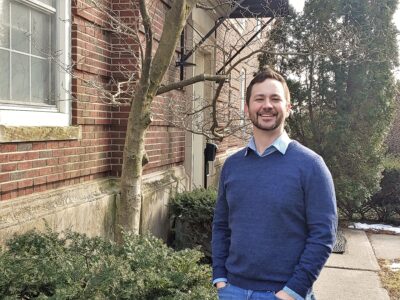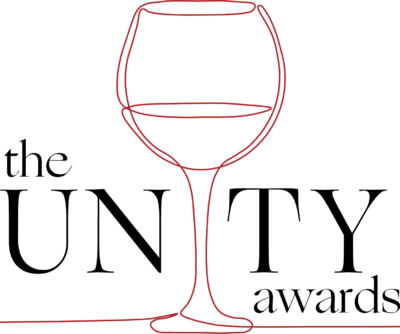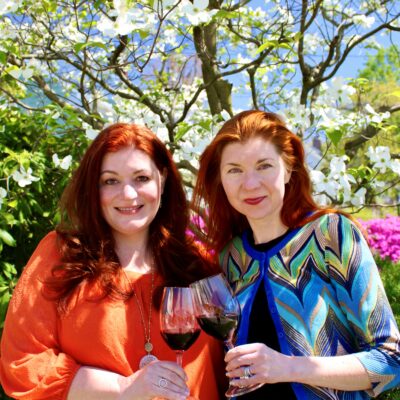
Does good wine begin in the vineyard, or the lab?
Without the behind-the-scenes work of grape researchers and geneticists, wine growers and makers—even with the best terroir and cellars—would have fewer disease-resistant and cold-hardy grapes to work with.
Too often, this quiet, but essential work is swept aside or forgotten when mulling a particularly great vintage of Finger Lakes Riesling. Which may explain just how “surprised and happy” Jason Londo says he was when learning that he received Researcher of the Year from the New York Wine & Grape Foundation.
“I’ve never gotten an award before, but I have such close relationships with the growers I’ve been working with for more than a decade, first at the USDA [U.S. Department of Agriculture] and now through my position at Cornell. It means a lot,” Londo, an associate professor at Cornell AgriTech, explains.
Londo joined Cornell AgriTech in 2011, but his role fell under the auspices of the USDA. In January 2022, he officially joined AgriTech’s team as a professor specializing in climate and fruit crop physiology.
“My day-to-day work has not changed drastically, but I will be studying apples as well as grapes,” says Londo. “And at the USDA, my focus was cold-hardiness, whereas at Cornell, it’s really climate change adaptation.”
Research Focus
Londo’s task, he says, is to “understand what different grapes are sensitive to. Drought, extreme cold, diseases. Once I establish what they appear to be vulnerable to, I dig in and look at the DNA of each one.”
At AgriTech, Londo measures a vine’s metabolism and nutrient uptakes to establish whether negative impacts have a genetic root.
“The ultimate goal, of course, is to find a way to create better grapes that will not only survive in the field but taste good in the glass,” Londo explains.
Over the years, Londo says he has worked with around 10 wild species of grapes, 16 Vitis vinifera and 16 hybrids.
“The ones I study most closely are the ones that perform well in the Finger Lakes like Riesling, Cabernet Franc, Chardonnay, Pinot Noir,” he says. “We are also excited about Saperavi and Tocai Friulano.”
He also studies grapes in the field, examines their responses, and communicates virtually with growers on their observations. Londo analyzes the observations and considers the data’s implications alongside reports from weather monitoring stations set up around wine country.
“By comparing data, you can assess how hardy different grapes and vines are in different conditions and create prediction models for the grape’s success here now, and in the future,” he explains.
Future of Research
Climate change, of course, is the Sword of Damocles swinging over all of our heads, but for someone specializing in it—the pressure is on.
“Weather and climate are hard to predict, but it is trending one way, and it’s not good,” Londo says. “I see it as my role to ensure growers are planting things now that they can grow and market in 20, 30 years. The lifespan of the vineyard is long, so planting decisions have to be made with care.”
Growers, he says, take the situation as seriously as he does.
“They’re out in the field, seeing crazy heat spikes in February followed by 40-degree dips a few days later,” Londo says. “The changes are accelerating.”
Thankfully, Londo and his team have a number of new experiments in place that may soon provide solutions.
“We’re testing how vines wake up in the spring,” Londo says. “If they wake up too early and bud, then another frost kicks in, growers will lose the grapes. We’re looking for ways to slow down that waking up process.”
Because while one overall trend is warmer weather, another is extreme and unpredictable weather.
Yet Londo is bullish on the future of viticulture in New York, especially with the new $68.9 million grapevine genetic lab under construction. The federal government allocated the funds to enable AgriTech to deploy the best genomic tools to study and breed grapevines.
“From my window at AgriTech, I see it going up, and it’s very exciting,” Londo says. “Look, I love my lab from a nerdy point of view because it’s part of the history of Cornell. But our facility is antiquated. This upgrade will make us much more functional.”
Functional, and arguably effective, at creating subtly different but profoundly hardier vines that will deliver the same flavors we love, for decades to come.
Wine lovers everywhere should raise a glass to these less-visible, but crucial taste makers.

About the Unity Awards
The Unity Awards were created in 1990 as a way to recognize, encourage, and celebrate cooperation among grape growers, wineries (and their staff), researchers, retailers and others to advance the entire industry. The winery and grower community in New York state has a rich history of working and succeeding together despite facing a variety of challenges through the years. Recognizing the longstanding and bold spirit of our community members and their numerous achievements, the New York Wine & Grape Foundation is proud to continue honoring industry leaders & champions of New York wine for more than 30 years.

